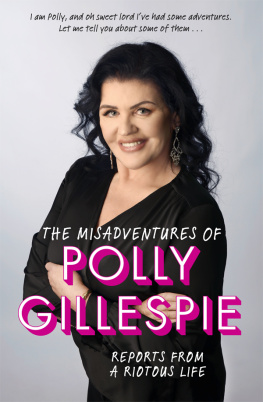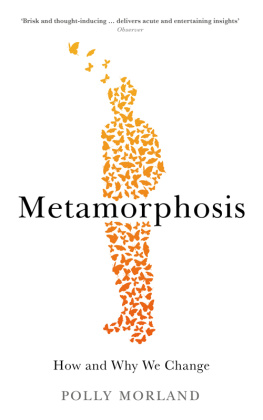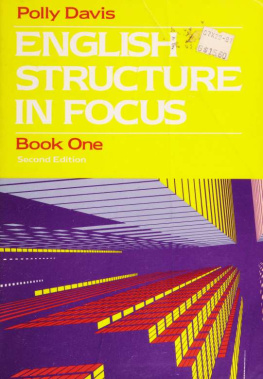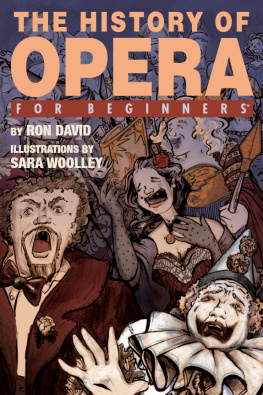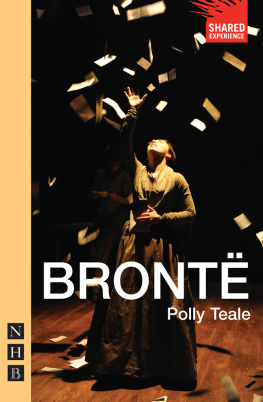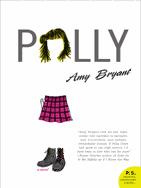Gladfelder Hal - The Beggars Opera and Polly
Here you can read online Gladfelder Hal - The Beggars Opera and Polly full text of the book (entire story) in english for free. Download pdf and epub, get meaning, cover and reviews about this ebook. year: 2013, publisher: Oxford University Press, genre: Detective and thriller. Description of the work, (preface) as well as reviews are available. Best literature library LitArk.com created for fans of good reading and offers a wide selection of genres:
Romance novel
Science fiction
Adventure
Detective
Science
History
Home and family
Prose
Art
Politics
Computer
Non-fiction
Religion
Business
Children
Humor
Choose a favorite category and find really read worthwhile books. Enjoy immersion in the world of imagination, feel the emotions of the characters or learn something new for yourself, make an fascinating discovery.

- Book:The Beggars Opera and Polly
- Author:
- Publisher:Oxford University Press
- Genre:
- Year:2013
- Rating:3 / 5
- Favourites:Add to favourites
- Your mark:
- 60
- 1
- 2
- 3
- 4
- 5
The Beggars Opera and Polly: summary, description and annotation
We offer to read an annotation, description, summary or preface (depends on what the author of the book "The Beggars Opera and Polly" wrote himself). If you haven't found the necessary information about the book — write in the comments, we will try to find it.
The Beggars Opera and Polly — read online for free the complete book (whole text) full work
Below is the text of the book, divided by pages. System saving the place of the last page read, allows you to conveniently read the book "The Beggars Opera and Polly" online for free, without having to search again every time where you left off. Put a bookmark, and you can go to the page where you finished reading at any time.
Font size:
Interval:
Bookmark:
OXFORD WORLDS CLASSICS
THE BEGGARS OPERA
AND
POLLY
JOHN GAY (16851732) was born in Barnstaple in Devon, to a socially prominent Dissenting family involved in trade with the West Indies. Orphaned at ten, Gay was educated at the Barnstaple Grammar School and later apprenticed to a silk mercer in London, but he broke off his apprenticeship early, and in 1707 joined forces with the literary entrepreneur Aaron Hill. Through Hill, Gay was introduced to the London literary and theatre worlds, and began to make a name for himself as a poet with The Shepherds Week (1714), a set of six comic-pastoral eclogues. In this period he became friends with Alexander Pope and Jonathan Swift, with whom he remained close for the rest of his life. In search of a courtly sinecure, Gay was successively steward to the Duchess of Monmouth and secretary to Lord Clarendon, and was supported by such patrons of the arts as the Duke of Chandos and Richard Boyle, Earl of Burlington, who helped Gay to the post of Commissioner of the State Lottery, which he held from 1723 to 1731. With Trivia (1716), a mock-georgic poem on the Art of Walking the Streets of London, and Poems on Several Occasions (1720), Gay secured his reputation as a poet, although he lost most of the profits from the latter with the collapse of the South Sea Bubble investment scheme. In his parallel career as a playwright, Gay wrote such minor hits as the tragi-comi-pastoral farce The What DYe Call It (1715), but his greatest theatrical success was The Beggars Opera (1728), a raucous, bitingly satirical ballad opera or comedy with songs, which had a record-breaking first season and proved the most popular play of the century. Its sequel, Polly, was barred from the stage for political reasons, but Gay made a small fortune from publishing it; along with his first volume of verse Fables (1727), it brought him wealth at last. After three years as the special guest of the Duke and Duchess of Queensberry, Gay died in December 1732.
HAL GLADFELDER is Senior Lecturer in Eighteenth-Century English Literature and Culture at the University of Manchester. His books include Criminality and Narrative in Eighteenth-Century England: Beyond the Law (2001) and Fanny Hill in Bombay: The Making and Unmaking of John Cleland (2012), as well as the Broadview edition of Clelands Memoirs of a Coxcomb (2005).
OXFORD WORLDS CLASSICS
For over 100 years Oxford Worlds Classics have brought readers closer to the worlds great literature. Now with over 700 titlesfrom the 4,000-year-old myths of Mesopotamia to the twentieth centurys greatest novelsthe series makes available lesser-known as well as celebrated writing.
The pocket-sized hardbacks of the early years contained introductions by Virginia Woolf, T. S. Eliot, Graham Greene, and other literary figures which enriched the experience of reading. Today the series is recognized for its fine scholarship and reliability in texts that span world literature, drama and poetry, religion, philosophy, and politics. Each edition includes perceptive commentary and essential background information to meet the changing needs of readers.
Refer to the to navigate through the material in this Oxford Worlds Classics ebook. Use the asterisks (*) throughout the text to access the hyperlinked Explanatory Notes.
OXFORD WORLDS CLASSICS

JOHN GAY
and

Edited with an Introduction and Notes by
HAL GLADFELDER


Great Clarendon Street, Oxford OX2 6DP
United Kingdom
Oxford University Press is a department of the University of Oxford. It furthers the Universitys objective of excellence in research, scholarship, and education by publishing worldwide. Oxford is a registered trade mark of Oxford University Press in the UK and in certain other countries
Editorial material Hal Gladfelder 2013
The moral rights of the author have been asserted
First published as an Oxford Worlds Classics paperback 2013
Impression: 1
All rights reserved. No part of this publication may be reproduced, stored in a retrieval system, or transmitted, in any form or by any means, without the prior permission in writing of Oxford University Press, or as expressly permitted by law, by licence or under terms agreed with the appropriate reprographics rights organization. Enquiries concerning reproduction outside the scope of the above should be sent to the Rights Department, Oxford University Press, at the address above
You must not circulate this work in any other form and you must impose this same condition on any acquirer
British Library Cataloguing in Publication Data
Data available
ISBN 9780199642229
Printed in Great Britain by
Clays Ltd, St Ives plc
FOR help and encouragement of various kinds while I was preparing this volume, I am grateful to Thomas Keymer, Jeffrey Geiger, Noelle Gallagher, and, especially, Judith Luna at Oxford University Press. Jeanne Clegg invited me to present some of the material in its early stages at the Universit Ca Foscari in Venice, and my students at the University of Manchester helped me sharpen my readings, often by resisting them. I am also indebted to numerous previous editors of The Beggars Opera, including John Fuller, Edgar V. Roberts, Bryan Loughrey and T. O. Treadwell, Vivien Jones and David Lindley, and particularly Peter Lewis, whose superb critical edition provided the editorial model for my work on both plays.
SHORTLY before the opening night of The Beggars Opera, 29 January 1728, John Gays friend Alexander Pope, in a letter to Jonathan Swift, expressed uneasiness as to what audiences would make of it: Gays Opera, he wrote, is just on the point of Delivery. It may be calld (considering its Subject) a Jayl-Delivery. Mr Congreve (with whom I have commemorated you) is anxious as to its Success, and so am I; whether it succeeds or not, it will make a great noise, but whether of Claps or Hisses I know not.
Despite its runaway success, however, Pope, Swift, and the great Restoration playwright William Congreve were right to be anxious about the plays reception, for Gay had created a work that left even his friends puzzled. Charles Douglas, Duke of Queensberry, who with his wife Catherine was Gays most loyal patron, was at a loss when he first read the manuscript, remarking, This is a very odd thing, Gay; I am satisfied that it is either a very good thing, or a very bad thing.first theatrical success, the one-act What DYe Call Itwhose title draws attention to its strangenesswas subtitled a Tragi-Comi-Pastoral Farce, as if to emphasize its unclassifiability. The collision of incongruous literary forms that these subtitles announce would be most fully realized in The Beggars Opera and its sequel Polly, which veer from raucous satire to poignant lyricism, from cynicism to sentimentality, in the space of a few lines, continually wrong-footing their audiences. But it was precisely that unpredictability, the juxtaposition of clashing styles and generic expectations, which struck a chord with theatre-goers.
Next pageFont size:
Interval:
Bookmark:
Similar books «The Beggars Opera and Polly»
Look at similar books to The Beggars Opera and Polly. We have selected literature similar in name and meaning in the hope of providing readers with more options to find new, interesting, not yet read works.
Discussion, reviews of the book The Beggars Opera and Polly and just readers' own opinions. Leave your comments, write what you think about the work, its meaning or the main characters. Specify what exactly you liked and what you didn't like, and why you think so.


